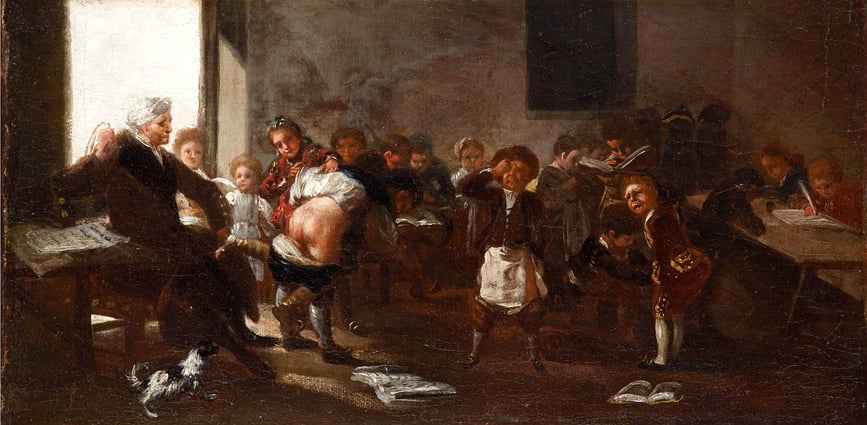
A group of six former high-ranking Spanish politicians have been implicated in a suspected money-laundering scheme involving the government’s purchase of two Francisco Goya canvases and other artworks, for around €14 million ($17.5 million). As reported by Newsweek, that figure is roughly twice the market price for the works, and it is unclear where the money actually went.
The six are currently under investigation. The purchase of the paintings, which took place between 2006 and 2010, was overseen by husband and wife team Carlos Eso and Eva Almunia, a former cabinet member in Aragones, and education secretary, respectively. Together with four others, Almunia and Eso created a company named Plaza, which served as an intermediary in the sales.
Plaza was founded just over a week before the first acquisition, and had no other activities besides its mysterious involvement in purchasing the paintings. In 2006, the company helped the Aragones government acquire Goya’s La Letra con Sangre Entra for €2.5 million ($3.1 million), about double the auction price for the work just four years before. The government also snapped up Goya’s Retrato de Don Luis María de Borbón y Vallabriga for a cool €10 million ($12.5 million) in another sale overseen by Plaza.
The investigation is attempting to uncover the reason for the inflated prices, to determine if there was any mishandling of government funds during these sales, and to reveal the money trail.